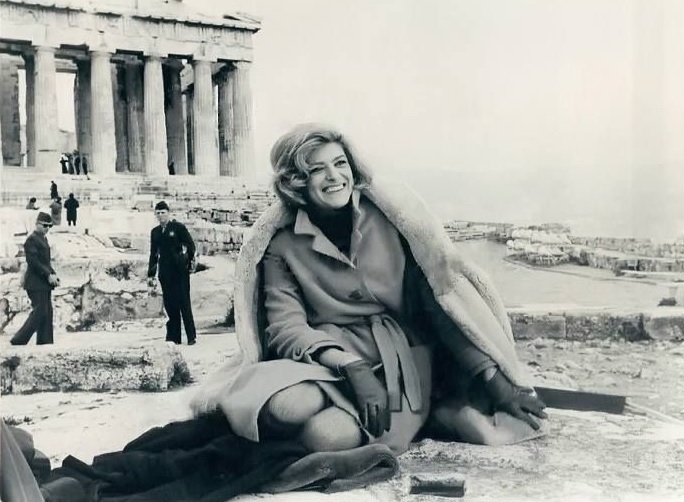
GREECE
Melina Merkouri led a fascinating life; in her story, we see the story of the Greek spirit and ardor. She rose to fame as an actress and singer, first internationally acknowledged for her work in ‘Never On Sunday’, a film which earned her the Best Actress Award at the 1960 Cannes Film Festival.
Her film and stage career took off, and in 1967 she was performing on Broadway when colonels of the Greek military staged a coup d’etat and began the Regime of the Colonels in Greece. Merkouri started a strong international campaign against the Junta, most notably at a rally in 1968 in Trafalgar Square, London, where she recited Lord Byron and the Greek poet Ritsos with a passion echoed in the scarlet dress she wore.
When the colonels retaliated and took her citizenship away, she said:

“I was born a Greek and I will die a Greek. Those bastards were born fascists and they will die fascists.”
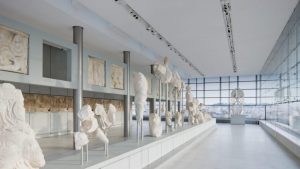
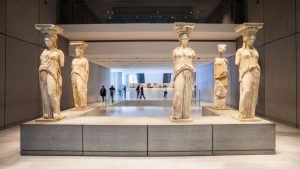
The Junta fell in 1974 and Merkouri returned to Greece, remaining heavily involved in the nation’s politics; she was one of the founders of PASOK, the Panhellenic Socialist Movement. In 1981 to 1989 she was appointed Minister for Culture of Greece, the first woman to hold that position in the country’s history, and reappointed for the same role in 1993. One of her greatest achievements as minister was to establish the European Capital of Culture, to promote culture alongside a nation’s politics and economy; Athens was the first capital to hold the title in 1985.
Another magnificent endeavor was Merkouri’s advocacy for the return of the Parthenon Marbles, the famous classical Greek marble sculptures by Phidias, that were part of the original temple and other buildings of the Acropolis.
In 1986, Merkouri addressed the Oxford Union, a globally known debate society, joining the ranks of prominent speakers hosted there which include Winston Churchill, Malcolm X, the Dalai Lama and Mother Teresa. The topic that day was the return of the Parthenon Marbles from the British Museum to Greece. Merkouri’s address is illuminating, passionate.
“You must understand what the Parthenon Marbles mean to us. They are our pride. They are our sacrifices. They are our noblest symbol of excellence. They are a tribute to the democratic philosophy. They are our aspirations and our name. They are the essence of Greekness.”
Her speech paid tribute to the Greeks during the Turkish occupation, in particular.
“Who? These Greeks who, long after Pericles, created the miracles of Byzantine art? These Greeks who even under Turkish occupation created entire schools of arts and techniques? These Greeks who despite 400 years of Turkish rule grimly maintained their language and their religion? These Greeks who in their struggle for independence sent the Turkish soldiers bullets to be used against themselves. Yes, against themselves.
“The Turkish soldiers besieged on the Acropolis ran short of ammunition. They began to attack the great columns to extract lead to make bullets. The Greeks sent them ammunition with the message: ‘Here are bullets, don’t touch the columns’.”
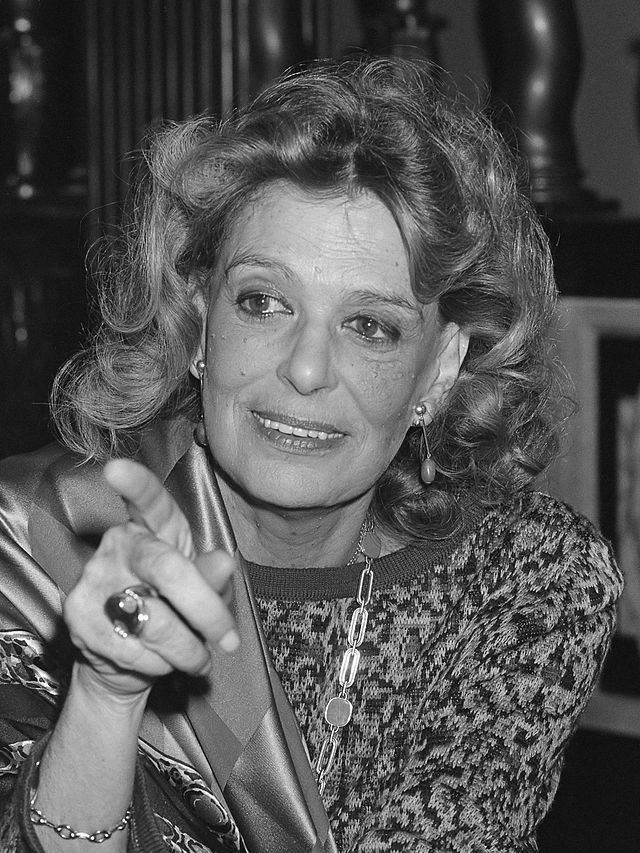
Merkouri’s speech stands unanswered until today, because unfortunately the Parthenon Marbles have yet to be returned. Amid the growing number of voices in support of the return of the Parthenon Marbles, an article in the New Yorker (Nov 2019) shares this experience:
“I have been to the [Acropolis] museum and was impressed by it. It is a light-filled multilevel building, whose design permits a person on the top floor to view the Parthenon sculptures up close at the height they occupied on the original roofline, against the background of the Acropolis itself. The display leaves poignant blanks for the missing pieces… Greece is no longer under the Ottoman Empire – in 2021, it celebrates two hundred years since the beginning of its war of independence – and it can take care of its heritage. The river god Kephisos was not meant to be ‘lounging in midair’ in London. He belongs in Athens, in the Acropolis Museum, anchoring the West Pediment of the Parthenon.”
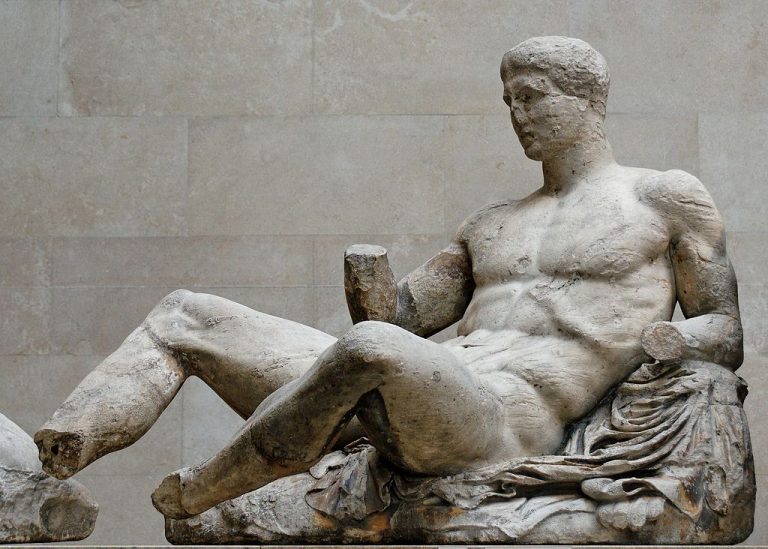
Upon her death in 1994, Merkouri was given a state funeral at the First Cemetery of Athens with honors. Her husband Jules Dassin founded the Melina Merkouri Foundation to continue her work, with a focus on the return of the Parthenon Marbles. UNESCO initiated the Melina Merkouri International Prize for the Safeguarding and Management of Cultural Landscapes which rewards actions that protect and enhance the world’s cultural landscapes.
Until today, her name recalls her extraordinary smile, her gracious presence, and her fiery dedication. IL SOFOIR recognizes and admires the authenticity with which Merkouri lived her life. In this, we take inspiration and motivation to do the same.
